What inspired you to write Speak Up Sami?
My faith inspires my stories and with this story in particular, the hadith about standing up against injustice was on my mind. Taking action physically when you see injustice is encouraged in Islam and if you can’t do that, then using your voice is advised and if that isn’t possible, then you need to hate the wrongdoing in your heart. As a teacher, I have witnessed bullying many times. All of us will have come across it at school or elsewhere and we know it’s wrong so I wanted to address this topic to give little ones the confidence to be brave.
So what is the story about?
It’s about a quiet little boy called Sami who is faced with a dilemma of being a passive bystander or proactively standing up to the bullying when he sees the new boy, Gamba being teased. The story provides opportunities to have some really meaningful and interesting conversations about injustice, kindness friendship, diversity and more.
What is the aim of Speak Up Sami?
To empower little readers to be brave enough to stand up to bullying and to show how friendships can blossom with kindness and tolerance. Whether you’re a child or an adult, it’s not always easy to speak up and take action so I want to encourage little ones to use their voice for good. I hope the story also teaches children that they should be proud of their cultural and religious identity and gives them much needed representation.
Why is representation important to you?
It’s incredibly important to be seen and feel heard. Picture books are so powerful and children’s early exposure to them helps to form their understanding of the world around them. They begin to form ideas about what is acceptable and the norm. Placing diverse characters in significant roles is important to see in picture books whether that’s a young character or an adult.
I didn’t have that representation growing up. I remember never drawing a South-Asian or Muslim teacher because I had never seen one at school. I always drew white characters and all my characters had English-sounding names.
When children don’t see people like themselves in books and other forms of media, it can feel like they don’t matter. They may think that people who look like them don’t have important roles to play in society or what they say isn’t of value.
One book alone isn’t going to change things for many young people. Often children need to hear messages repeated before that message is embedded and becomes part of their belief system about the world around them and their place within it. They need to feel diverse characters are the norm before they reflect that reality in their work, whether that’s through writing, art or conversations. This is why representation is crucial.
Sounds great, we definitely need more representation in children’s literature. Could you tell us more about Gamba’s character?
Just like Muslim representation is important, I believe more diverse characters are also needed within children’s books. I wanted to give little readers big topics to discuss, like discrimination. I find that there is much ignorance around Africa. So many think Africa is a country rather than a continent with many countries. As a result I decided on Gamba’s home country to be Zimbabwe as we don’t often see Zimbabwe featured in children’s stories. I hope my book can help develop children’s curiosity about the wider world and provide interesting conversations long after the last page of the story is turned.
Are you working on any other books?
Yes! I’m actually working on another two and they’re very different. One is a light-hearted rhyming story to promote a strong Muslim identity and the other deals with a heavy topic. With recent global events, young people are being exposed to death more. It’s great to see some authors recently deal with grief in their books, however, there is not much from an Islamic perspective for children. My book tackles death from a slightly different angle and I pray that it benefits many when it is out InshaAllah.
Speak Up Sami – Shabana Hussain – 9780860378877
The Messenger of Allah, peace and blessings be upon him, said, “Whoever among you sees evil, let him change it with his hand. If he is unable to do so, then with his tongue. If he is unable to do so, then with his heart, and that is the weakest level of faith.” Sahih Muslim 49
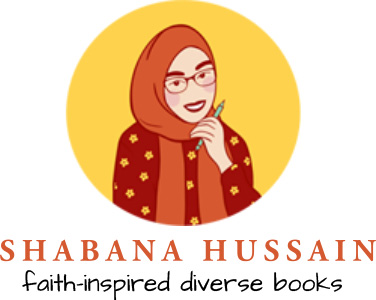

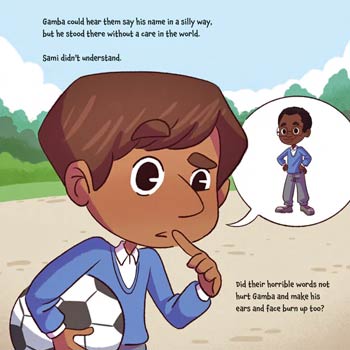
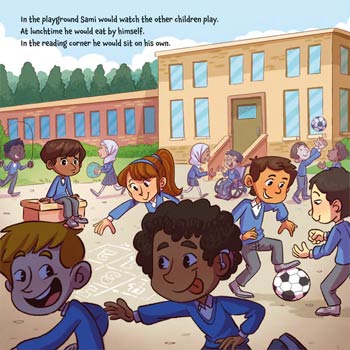
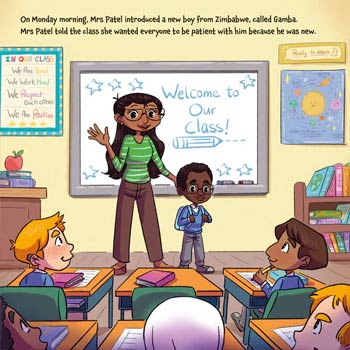
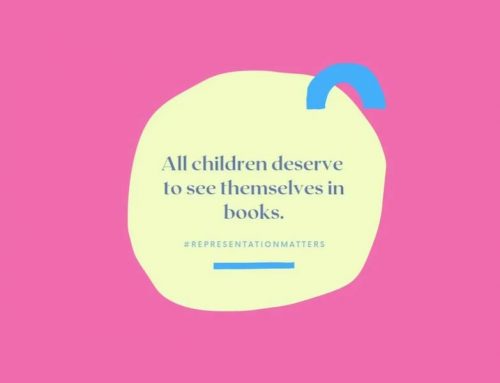
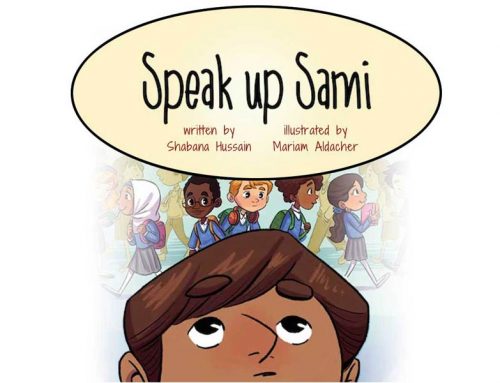
Leave A Comment